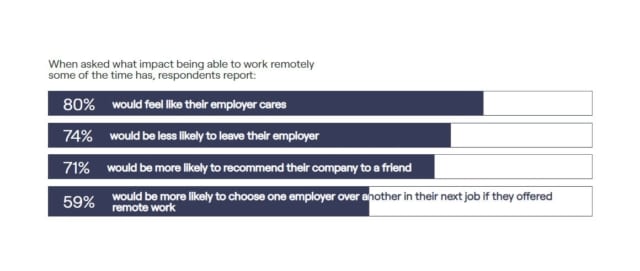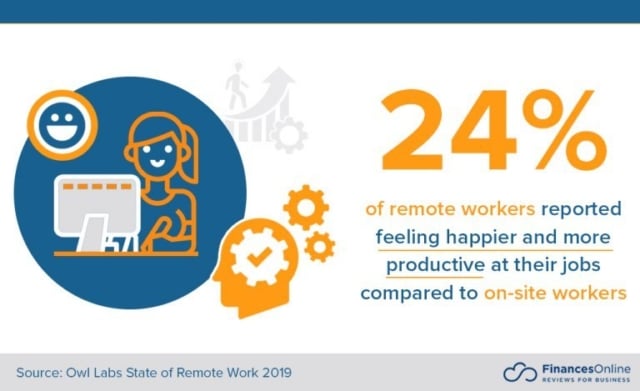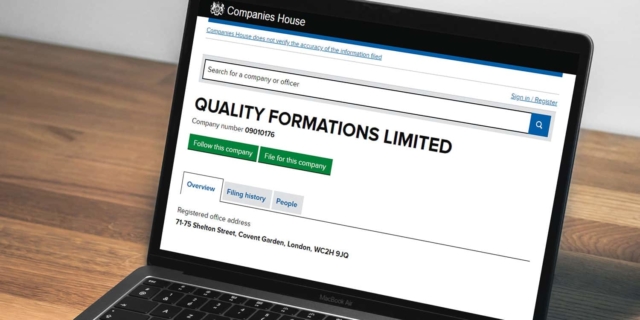If you’re a small business owner or sole trader, you’ll know that the cost of renting a physical office space can be prohibitive. That goes double for premises in central London. But if you decide that you and your staff will work remotely, you risk losing the professional appearance that a traditional business address brings.
The solution? Set up your own virtual office. You’ll find it much more affordable than a physical workspace or coworking facility. In this post, we’ll explore exactly how a virtual office operates, what the advantages are, and why using the best technology is crucial to making it work for you.
What is a virtual office?
It may sound futuristic, the term dates back to at least the 1980s. However, technology has moved on a bit since then. Today’s virtual offices incorporate smart solutions to keep the whole team connected.
Operating a virtual office means that instead of paying to rent a physical premises, you’re renting an address and a selection of office services from a provider. These are accessible from wherever your team happens to be, and typically include telephone answering options and mailing address services.
This is particularly helpful for smaller businesses, as you don’t have to use your home address for business purposes. Instead, you can have a postal address and a landline phone number assigned to your company. This means you can pick a prestigious location, such as central London, to give the impression of an established and professional business.
Virtual offices also use a range of online communication tools, such as video conferencing and team messaging from expert providers like RingCentral.

Who uses virtual offices?
According to the Office for National Statistics, 35.9% of the employed UK population and 42.9% of Londoners worked from home at some point in 2020, an increase of 9.4 percentage points from 2019. We can thank the pandemic for part of that increase, but remote working was already on the rise and is set to continue—with London leading the way.
Of course, operating a virtual office doesn’t necessarily mean working from home. With the right technology, you can work from pretty much anywhere, and virtual offices are used by various types of business in various industries and sectors.
For instance, they’re ideal if your start-up isn’t ready to rent a physical space. That’s not to say you won’t want to move to bricks-and-mortar premises in the future, but a virtual office is a great starting point while the business gets established.
At the other end of the scale, an established company may seek to ‘go virtual’ in order to avoid the costs and admin of a physical office and give its employees more flexibility. Or a large enterprise may use a virtual office to test out a local market and see if it’s worth basing a branch there.
Virtual offices are also popular in ecommerce. As high street stores develop their online presence, they increasingly employ remote staff for tasks like processing transactions and communicating with clients.
How does a virtual office work?
Once you’ve registered a company address in your chosen location, you can run your virtual office from anywhere you like. Business owners generally sign up for a virtual office package from a provider, which gives them a range of services (often on a pay-as-you-go-basis).
Post that’s delivered to your business address can be physically forwarded to your home—or opened, scanned, and emailed to you before being safely shredded. On-site receptionists will also sign for incoming deliveries when necessary, and greet any customer who turns up at the registered address.

Virtual offices usually employ a professional call answering service, which diverts calls to your personal devices. The phone number you’ve set up will be answered at your business address in your company name, and calls or messages transferred directly to you.
Providers often give you access to on-demand services like printing, copying and faxing, as well as the ability to hire a professional meeting room if you need one. Meanwhile, your remote workforce keeps in touch via software and apps for team chat and video calls.
Benefits of using a virtual office
Affordability
As we’ve mentioned, adopting a virtual office will cost you far less than a physical space. The overheads are much lower—no utility bills or buildings insurance to pay, and no ongoing maintenance to carry out. Neither will you have to buy office equipment (although you might need to provide certain items for your remote staff).
Travel costs also become a thing of the past, for both you and your employees. No need to pay a fortune each year for commuting into the city by train or Tube, and the technical capability of a virtual office system also means you can easily meet overseas colleagues on-screen.
The cost of rent for office space in London is the highest in Europe. Basically, if you want the cachet of a London address without the hefty price tag, this is the best way to do it!
Professionalism
Among the many benefits of a virtual office is the ability to give out a London business address to customers. When they see this on your email signature, letterheads, or business cards, they’ll form the impression that your company is professional, well-established and trustworthy.
A professional business address also protects your privacy—you don’t really want to put your personal address and mobile number out there for all to see.
Flexibility
A virtual office means your team is not tied to a single location, and can work from home or anywhere else. This makes it much easier to adopt flexible working hours, and fit in other responsibilities around client calls and emails.
These days, most employees expect a degree of flexibility, and the majority will find their work-life balance improves by being able to choose their own hours and location. This leads to a happier and more productive workforce, with fewer days off sick.

Recruitment and retention are also increased when you offer flexible options, with 54% of employees surveyed worldwide would consider leaving a job that didn’t offer flexibility post-pandemic.
Scalability
The virtual way of working allows businesses to expand and contract more easily than they could with a physical office. You don’t have to think about finding bigger (or smaller) premises to meet your changing needs, while cloud-based software makes it simple to add or remove employees.
Virtual offices also make it easier to recruit the best talent, as workers won’t need to travel to a specific office location each day. You’ll be able to hire nationwide or even internationally and find the top people for the job (and keep them connected with the likes of RingCentral Video).
Productivity
Commuting into a city—especially central London—can be a pain in the backside. If you eliminate those journeys, not only will stress levels decrease, but you’ll also have more time to spend on actual work.
Productivity also gets a boost from services like telephone answering, which help you save time by having someone else pick up the phone and only transferring calls to you when necessary. It also allows messages to be taken round the clock, so you’ll never miss anything crucial.
Plus, if you implement pay-per-month communications services from a reliable provider like RingCentral, you won’t have to worry about system downtime!

How to start a virtual office in London
A virtual office is ideal for a London business, as it avoids expensive rental fees and stressful commutes. However, if you’re based elsewhere in the UK, or your workforce is spread across many geographical locations, you can still choose a London address and phone number to give you that big-city look.
The first thing to do is decide where you want your business address to be based. Just as certain areas of London are more expensive than others when it comes to physical premises, the same applies to virtual office addresses—so bear that in mind when choosing a location.
Next, decide exactly what you want from your virtual office. What features and services will you need? How can you keep on top of productivity and team communication? How much flexibility will you give your staff?
Don’t forget to factor in hardware and software, such as laptops and phones for your team. You’ll need a virtual phone system and cloud-based email platform, as well as video conferencing and productivity tools. If you can find all of this in one package, such as RingCentral Video, you’ll find it not only more affordable but also easier to use.
Once you have a list of needs and wants, you can start to research virtual office providers and packages. Look for an option that gives you plenty of functionality, the opportunity to scale up or down, and simple, affordable pricing plans.
Virtual office costs
While a virtual office will certainly save you money compared to a physical premises, there are many factors affecting the overall cost. As we mentioned above, the price of your business address will differ according to the area of London you choose (see example below).

Of course, the cost of virtual office services will also depend upon your individual requirements. You can choose anything from a standard PO Box to a full service with virtual receptionist, mail forwarding, and meeting room access—but be prepared to pay more for premium packages.
The good news is that payments for virtual offices are pretty flexible and are usually charged monthly on a pay-as-you-go basis. This means you avoid a large upfront fee, and you’re not tied into a lengthy contract.
The same is true for the SaaS (software-as-a-service) model used by communications providers like RingCentral. Again, you’re effectively renting the service, so you only pay for what you need, when you need it.
Rules and regulations
As well as offering simple payment plans, virtual office agreements are usually easy to navigate. You probably won’t even need to have the terms checked over by a solicitor, although you should always make sure you’ve read the small print!
It’s perfectly legal to use a business address in London, even if you work elsewhere. However, there are certain regulations that you should be aware of. Virtual offices need to be registered with Companies House and HM Revenue & Customs, so that all official documentation is sent to your registered office address.
Many London councils have adopted legislation that requires virtual offices to be registered with them, incurring a one-off fee. You need to check whether or not this applies to the address you want to use—and also check London Trading Standards for rules around the forwarding of mail.

Is a virtual office right for me?
Well, if you’re a small business or a startup that wants to keep costs down, and if you think you can run your company successfully without being based in a physical location, then a virtual office could be the right choice for you.
Affordability is a big motivating factor, as is the professional image of a prestigious business address—it lets you have a London office without the cost and hassle of running a physical London office.
Virtual office solutions are fast and simple to set up, and smart technology means you can access all the functions of a traditional office from wherever you want to work. You’ll need the best communications software to keep the team in touch, so don’t forget to check out RingCentral’s products to see how they can help you make the most of your virtual office.
Originally published Oct 14, 2021, updated Dec 15, 2021

